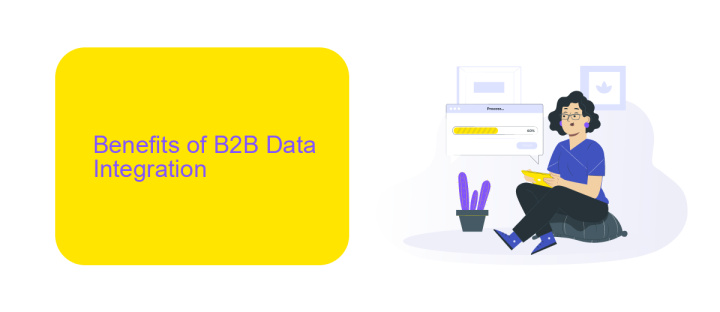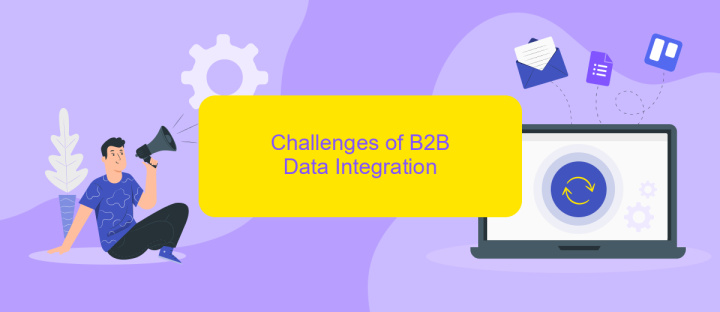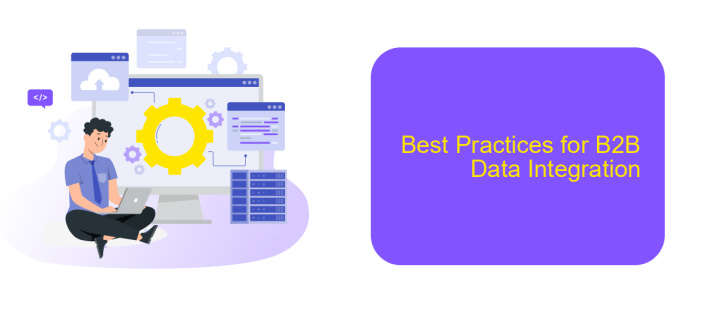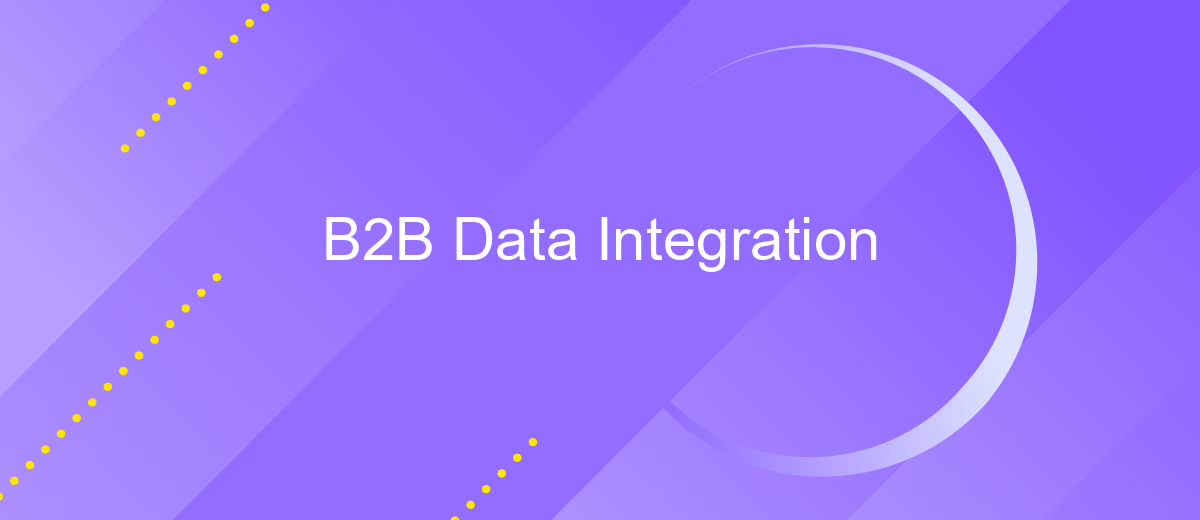B2B Data Integration
In today's fast-paced business environment, B2B data integration has become a critical component for achieving operational efficiency and competitive advantage. By seamlessly connecting disparate systems and enabling real-time data exchange, businesses can streamline workflows, enhance collaboration, and make more informed decisions. This article explores the key benefits, challenges, and best practices for implementing effective B2B data integration strategies.
Overview of B2B Data Integration
B2B Data Integration involves the seamless exchange of data between business partners, enabling efficient operations and strategic decision-making. It ensures that data flows smoothly across various systems, reducing errors and improving productivity.
- Automated data synchronization
- Improved data accuracy
- Enhanced operational efficiency
- Cost reduction
Setting up B2B data integration can be complex, but services like ApiX-Drive simplify the process. ApiX-Drive offers a user-friendly platform to connect different business applications without requiring extensive technical knowledge. By automating data transfers and transformations, businesses can focus on growth and innovation rather than data management challenges.
Benefits of B2B Data Integration

B2B Data Integration offers numerous benefits, enhancing the efficiency and effectiveness of business operations. By streamlining data exchange between partners, it reduces manual data entry, minimizing the risk of errors and saving valuable time. This seamless integration allows for real-time data sharing, ensuring that businesses can make informed decisions quickly and accurately. Additionally, it improves supply chain visibility, enabling companies to respond promptly to market changes and customer demands.
Furthermore, B2B Data Integration facilitates better collaboration among business partners. Tools like ApiX-Drive simplify the integration process, allowing businesses to connect various data sources effortlessly. This not only reduces the complexity of managing multiple integrations but also ensures that data flows smoothly across systems. As a result, companies can enhance their operational efficiency, improve customer satisfaction, and gain a competitive edge in the market. Overall, B2B Data Integration is a vital component for any business looking to optimize its processes and drive growth.
Challenges of B2B Data Integration

B2B data integration presents numerous challenges that businesses must navigate to achieve seamless data exchange. These challenges can significantly impact the efficiency and reliability of business operations.
- Data Security: Ensuring the security of sensitive business data during transfer is paramount. Companies must implement robust encryption and authentication protocols.
- Data Compatibility: Integrating data from various sources often leads to compatibility issues. Different systems may use diverse formats and standards, complicating the integration process.
- Scalability: As businesses grow, their data integration needs evolve. Ensuring that integration solutions can scale with business growth is critical.
- Maintenance and Support: Continuous monitoring and maintenance of integration systems are necessary to address any issues promptly. Reliable support services, such as those offered by ApiX-Drive, can be invaluable.
Overcoming these challenges requires a strategic approach and the right tools. Services like ApiX-Drive can simplify the integration process by providing automated solutions for data transfer, ensuring compatibility, and offering robust support to maintain seamless operations.
Best Practices for B2B Data Integration

Implementing effective B2B data integration is crucial for seamless business operations and enhanced collaboration between partners. To achieve this, it is essential to follow best practices that ensure data accuracy, security, and efficiency.
First, establish clear communication channels and protocols with your business partners. This helps in understanding data requirements and minimizes discrepancies. Additionally, leveraging integration platforms like ApiX-Drive can simplify the process by automating data transfers and ensuring real-time updates.
- Define standardized data formats and protocols to avoid compatibility issues.
- Implement robust security measures to protect sensitive business data.
- Regularly monitor and audit data flows to identify and resolve issues promptly.
- Utilize scalable solutions that can grow with your business needs.
- Ensure comprehensive documentation for all integration processes.
By adhering to these best practices, businesses can achieve efficient and reliable B2B data integration. This not only enhances operational efficiency but also fosters stronger partnerships and drives overall business growth.


Future of B2B Data Integration
The future of B2B data integration is poised for significant advancements, driven by the increasing demand for real-time data exchange and seamless interoperability between diverse systems. Emerging technologies such as artificial intelligence (AI) and machine learning (ML) are set to revolutionize how businesses handle data integration, enabling predictive analytics and automated decision-making processes. These technologies will not only enhance data accuracy but also reduce the time and effort required for manual data management, fostering more efficient and agile business operations.
Moreover, the rise of integration platforms as a service (iPaaS) solutions, like ApiX-Drive, will play a crucial role in simplifying the integration process. ApiX-Drive offers a user-friendly interface that allows businesses to connect various applications and automate workflows without the need for extensive coding knowledge. This democratization of data integration tools ensures that even small and medium-sized enterprises can leverage advanced integration capabilities, fostering a more inclusive and competitive business landscape. As these technologies continue to evolve, the future of B2B data integration promises greater connectivity, efficiency, and innovation across industries.
FAQ
What is B2B Data Integration?
Why is B2B Data Integration important?
How can I implement B2B Data Integration in my company?
What are the common challenges in B2B Data Integration?
How can I ensure data security in B2B Data Integration?
Apix-Drive is a universal tool that will quickly streamline any workflow, freeing you from routine and possible financial losses. Try ApiX-Drive in action and see how useful it is for you personally. In the meantime, when you are setting up connections between systems, think about where you are investing your free time, because now you will have much more of it.

